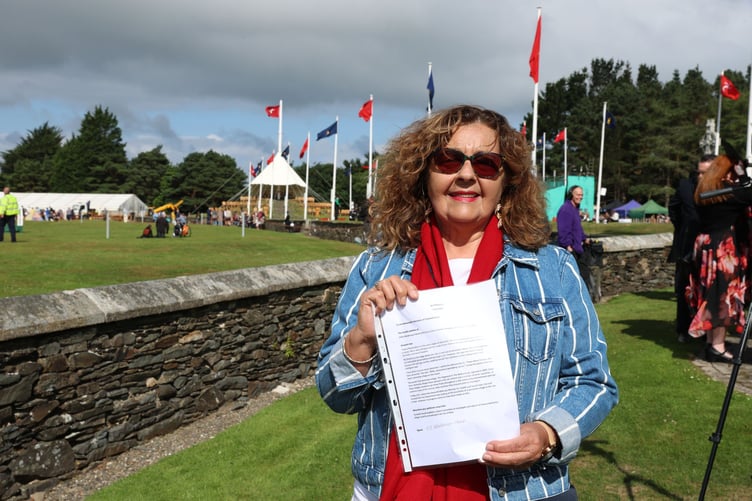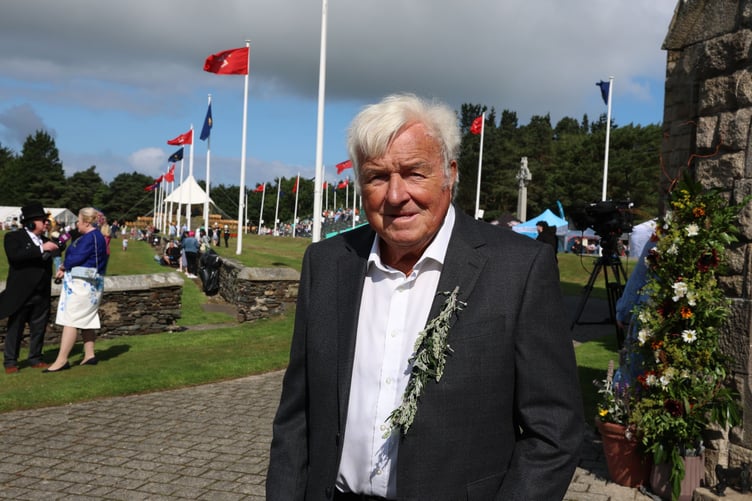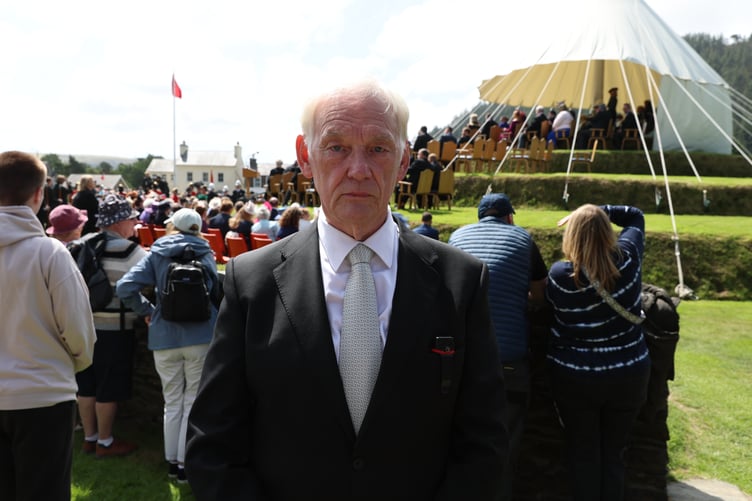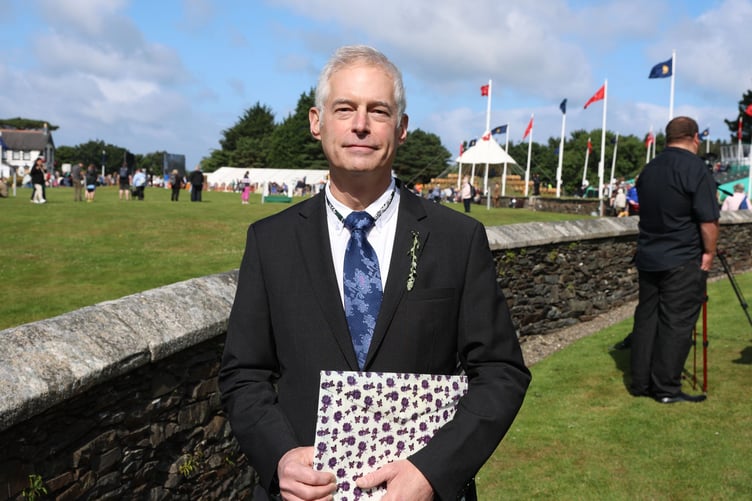A number of petitions for redress of grievances were handed in to the government by members of the public during Tynwald Day on Monday.
The traditional practice allows people to personally submit their petitions to Lieutenant Governor Sir John Lorimer, and if found to be in order they may then be considered by Tynwald if a member decides to take it on.
Tynwald’s standing orders were altered last year, meaning that petitioners no longer have to have a ‘personal grievance’ in order to present a petition about their issue.
First-time petitioner Chris Pay has put forward a motion to create a select committee regarding the scheduled roll-out of 20mph speed limits across the island.
In his petition, Chris mentions the lack of a comprehensive impact assessment to evaluate effects on residents’ daily commutes, or businesses reliant on efficient transport.
The petition also reads: ‘I propose recommendations to revise the policy, pause the rollout, reverse changes, or introduce exemptions for low-risk roads, in order to minimise adverse impacts on residents, commuters, consumers, small businesses, delivery services, tradespeople, taxi operators, and essential services.’
Speaking during Monday’s Tynwald ceremony, Chris said: ‘I think this is an extreme situation of Government overreach.
‘We don’t have a problem and the Chief Constable has said publicly that he does not support it and he does not believe it will prevent serious accidents.
‘It’s almost like we have a solution that we’re trying to implement, without even having a problem.
‘The residents don’t want it and the taxi drivers are up in arms - it is an awful lot of money to spend on some fancy project when there are so many other issues in the island.’

Millie Blenkinsop-French, who has been an avid campaigner for the Assisted Dying Bill in recent years, also submitted a petition in support of a potential ‘dementia village’ in the island.
Also speaking at Tynwald Day, Millie said: ‘In 2017, a now former Health Minister told Tynwald that she was looking into the possibility of implementing a dementia village in the Isle of Man.
‘However, it’s now 2025 and no progress has been made on this, so I just want to jog their memories.
‘The first dementia village was launched in the Netherlands and since then there’s been more in the UK, Ireland and other countries.
‘In these villages, residents can move freely in a safe community environment and continue many of the normal daily activities that they enjoyed prior to moving into a home.’

First-time petitioner Nichola Whitlam-Beckett, on behalf of the ‘Diverse Minds’ organisation, submitted a grievance in which she called for all education staff to receive ‘mandatory, consistent and ongoing’ training to help the teaching of neurodiverse students.
The petition reads: ‘We believe that such training must go beyond basic awareness or “tick-box” exercises - it should be designed to actively educators and build deeper knowledge.’

David Watts also submitted a petition asking for Tynwald to establish a select committee to look at the due diligence surrounding the recent award of a £2.25m grant to King William’s College (KWC).
‘It was brought up during a House of Keys sitting but I thought there must be more to it than this,’ David said.
‘I wanted to see what due diligence had been undertaken by the Treasury and the Department for Enterprise.
‘I applied to the charities regulator for copies of the last five years worth of annual accounts from KWC, and there are a host of questions that need to be asked and brought out into the public domain surrounding the award of this loan.’

Elsewhere, persistent Tynwald petitioner Trevor Cowin submitted nine petitions again this year, a number of which referred to previous petitions which weren’t picked up by MHKs.
One of Trevor’s petitions is against the Department of Environment, Food and Agriculture (DEFA) and relates to ‘the demolition of Glenfaba House by Manx Utilities which DEFA stated did not need any planning permission, despite the fact that the Town and Country Planning Act 1999 is an Act for the protection of buildings’.
Mr Cowin also put forward another petition against DEFA, this time for the application of a ‘20-metre’ rule concerning ‘interested person status’.
The petition reads: ‘This could’ve had an impact on the 30,000 or so persons who protested against the cutting down of the St Mark’s Elm Arch, who, even if they had objected to the planning application would have had no right to be granted interested person status because they don’t live within 20 metres of the development site.’
Trevor’s final petition relates to the former Information Commissioner Ian McDonald, who did not reply to Trevor following his complaint against Douglas Borough Council and its refusal to release the salary details of its chief executive.

Manx film advocate George Hargreaves also returned this year, with his latest petition being focused on Manx films being included in the Academy Awards (Oscars).
George said: ‘We have a situation here on the Isle of Man where no Manx language film can be entered into the Oscars, and this is because there is no organisation that has a mandate from the Government to actually choose a movie.
‘Therefore, we don’t qualify under the Academy’s rules.
‘I’m simply saying let the Isle of Man International Film Festival be that body. We will not take any money from the public purse, just give us the rubber stamp to do it and we’ll organise it.’

Meanwhile, Jenni Quiggin also submitted the same petitions to Tynwald as last year, most notably enquiring about the way police complaints are dealt with in the island.
She said: ‘The way they do this system is stupid because they handle the complaints themselves, back themselves up and don’t take the actions that they are supposed to take.’

First-time petitioner Alfred Caine submitted a grievance directed towards Treasury Minister Dr Alex Allinson, regarding the investment of at least £11m in the refurbishment of the former nurses home in Douglas by the Manx Development Corporation.
Mr Caine lists 10 different questions in the petition, including queries on the eligibility and allocation criteria of the building’s flats, who is paying for the key workers accommodation and what amount of costs are covered by rentals.




.jpeg?width=209&height=140&crop=209:145,smart&quality=75)